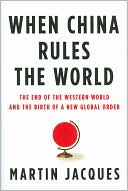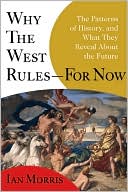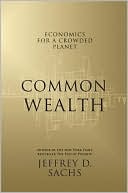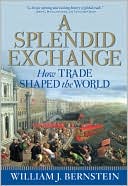Illusions of Prosperity: America's Working Families in an Age of Economic Insecurity
Faith in the free market--the idea that profit seeking, managed care companies will improve the health care delivery system--has become a hot topic in the public policy debate. But, as Joel Blau demonstrates in this splendid work, so-called "free market" programs have been a dismal failure. Here, he launches a far-reaching assault on the idea that "the market" knows best. He looks at recent reforms in NAFTA, education, job training, welfare, and much more, showing that the new social...
Search in google:
Faith in the free market—the idea that profit seeking, managed care companies will improve the health care delivery system—has become a hot topic in the public policy debate. But, as Joel Blau demonstrates in this splendid work, so-called "free market" programs have been a dismal failure. Here, he launches a far-reaching assault on the idea that "the market" knows best. He looks at recent reforms in NAFTA, education, job training, welfare, and much more, showing that the new social policies have made matters worse and calling for a stronger, more caring government to counter the debilitating effects of the market. He also urges the development of the broadest possible political alliances to ensure economic security. Sure to raise controversy, this book turns today's conventional wisdom inside out, making a profound case for the importance of a strong government in a world where markets do not have all the answers. Library Journal Blau's uneven polemic asserts that the current "market" approach to social ills helps only the top 20 percent of society while the rest suffer. He proposes increased federal government intervention as the solution, championing national healthcare, vastly expanded day care, stronger unions, and worker participation. Blau (social work, SUNY at Stony Brook), who looks at America through a Western European Socialist lens, feels that as long as business controls hiring and investments, education will not help most Americans. He acknowledges that his views are not in the majority but notes correctly that the pendulum could swing. Liberals may like his ideas; conservatives will cringe. Both will find this a tedious, occasionally condescending read--a lonely call for a return to big-government liberalism that most libraries will find more effectively argued in periodicals like the New Republic or the Nation. Neither lively enough to be called a screed nor convincing enough to be recommended.--Patrick J. Brunet, Western Wisconsin Technical Coll. Lib., La Crosse Copyright 1999 Cahners Business Information.
AcknowledgmentsIntroductionPt. IThe Turn to the Market11The Triumph of the Market32Business Moves: Markets, Nations, and Inequality223Disposable Workers434The Low-Wage, Low-Skill Strategy63Pt. IIThe Path Upward?795Education: Choice, Profit, and Democracy816Jobs and Job Training: The Field of Dreams1137Poverty and Welfare: Market as Cure or Market as Cause?135Pt. IIIBoth Workers and Citizens: The Route to Economic Security1618Democracy in the Workplace?1639The Government: From Client to Customer to Citizen17910The Next Deal200Notes223Index263
\ Library JournalBlau's uneven polemic asserts that the current "market" approach to social ills helps only the top 20 percent of society while the rest suffer. He proposes increased federal government intervention as the solution, championing national healthcare, vastly expanded day care, stronger unions, and worker participation. Blau (social work, SUNY at Stony Brook), who looks at America through a Western European Socialist lens, feels that as long as business controls hiring and investments, education will not help most Americans. He acknowledges that his views are not in the majority but notes correctly that the pendulum could swing. Liberals may like his ideas; conservatives will cringe. Both will find this a tedious, occasionally condescending read--a lonely call for a return to big-government liberalism that most libraries will find more effectively argued in periodicals like the New Republic or the Nation. Neither lively enough to be called a screed nor convincing enough to be recommended.--Patrick J. Brunet, Western Wisconsin Technical Coll. Lib., La Crosse Copyright 1999 Cahners Business Information.\ \








